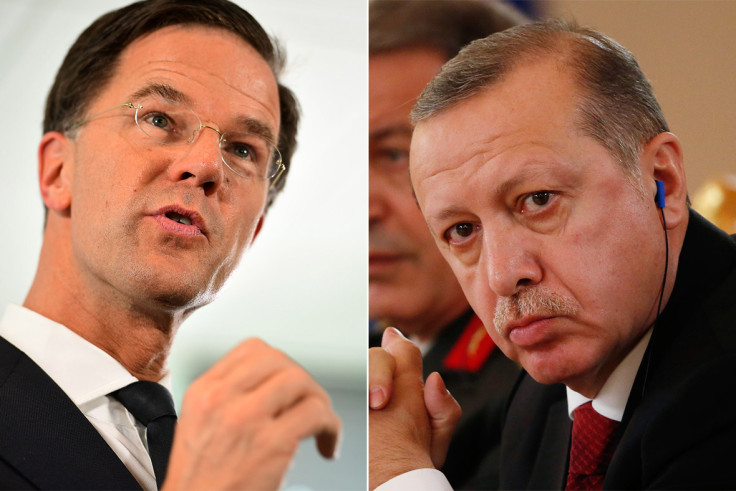Turkey threatens to tear up EU migrant deal after row with the Netherlands
Erdogan has repeated his claim that European leaders are behaving like 'Nazis'.
Turkey has threatened to tear up the migrant deal it agreed with the European Union last year as the diplomatic row between Ankara and the Netherlands intensifies.
The Turkish minister for the EU, Omer Celik, said that the country had so far upheld the deal under which it agreed to take back migrants that reach Europe from Turkey as it prevented deaths in the Aegean Sea. But that it was now re-considering the agreement.
"Turkey has no obligation at this stage to continue the agreement since the EU has failed to comply with it," Celik told Turkish state-owned news agency Anadolu. "But Turkey should reconsider this issue especially in terms of land crossing."
The renewed threats to scrap the deal follow days of tension between Turkey and various European countries including Austria, Germany and the Netherlands as the countries oppose Turkish ministers campaigning for the upcoming constitutional referendum aiming to give President Recep Tayyip Erdogan greater powers.
The Dutch government blocked two Turkish ministers from addressing a rally on 11 March, prompting Erdogan to deride the Netherlands and its citizens as "Nazi remnants", "fascists" and a "banana republic".
Turkey has promised retaliation for the Netherlands' actions and has banned the Dutch ambassador from returning to the embassy in Ankara for the time being.
It closed its airspace to Dutch diplomats and has also threatened sanctions, a proposal the Dutch Prime Minister Mark Rutte has dismissed as "bizarre" in an interview on 13 March, after calling on Erdogan to apologise for his comments. The EU, Nato and German Chancellor Angela Merkel have all condemned Turkey's statements and advised to de-escalate tensions.
Revising the EU migrant deal has become somewhat of a bargaining chip for Turkey, which has threatened to scrap it on a number of occasion, most recently in a row with Greece after the country refused to extradite eight Turkish military personnel. A Greek court is also expected to rule over whether Turkey can be considered a "safe country" for refugees, thus potentially dismantling the migrant deal.

Erdogan also threatened to open the borders in November, when the European Parliamen voted to suspend accession talks with the country due to Turkey's crackdown on opposition and civil society following a failed coup in July.
Under the terms of the deal, Turkey is to receive funds and concessions in return for it taking back all migrants that arrived in Greece after 20 March last year and were rejected asylum. In addition, for each Syrian returned, one of the three million Syrian refugees currently living in Turkey will be legally flown to Europe.
On the other hand, Ankara has been promised a speeding-up of stalled talks on its accession to the Union, the easing of visa restrictions for its nationals and €6bn (£4.6bn, $5.6bn) in aid before 2019. According to Anadolu, the Turkish government has so far received €677m.
The deal was a major talking point in a head-to-head debate between Rutte and his main rival, anti-Islam far-right leader Geert Wilders, ahead of the Netherlands' election on 15 March.
Wilders blamed Rutte for the spat with Turkey, and argued borders should be closed. Rutte countered that closing the border is "an illusion" that does not work, and the only way to prevent migrants from arriving in the country is to stipulate agreements with the countries from which they depart.
© Copyright IBTimes 2025. All rights reserved.






















